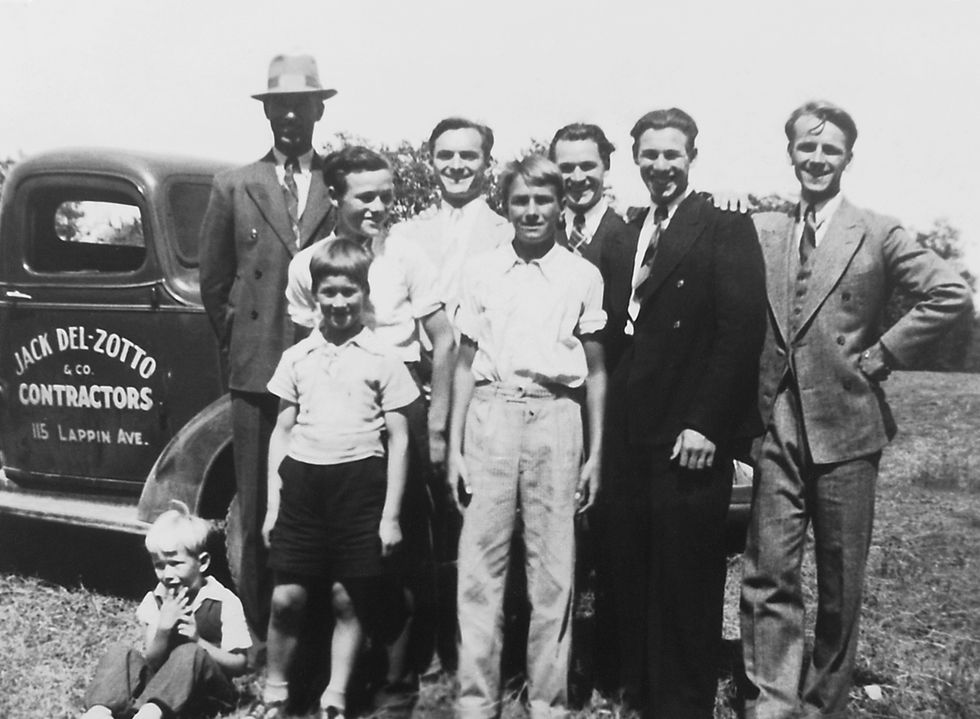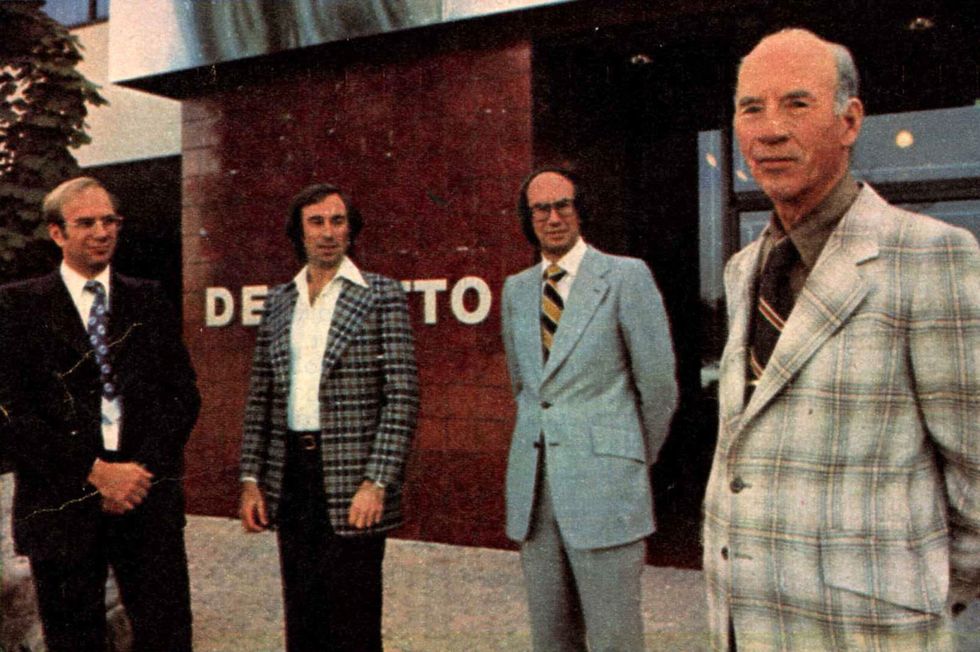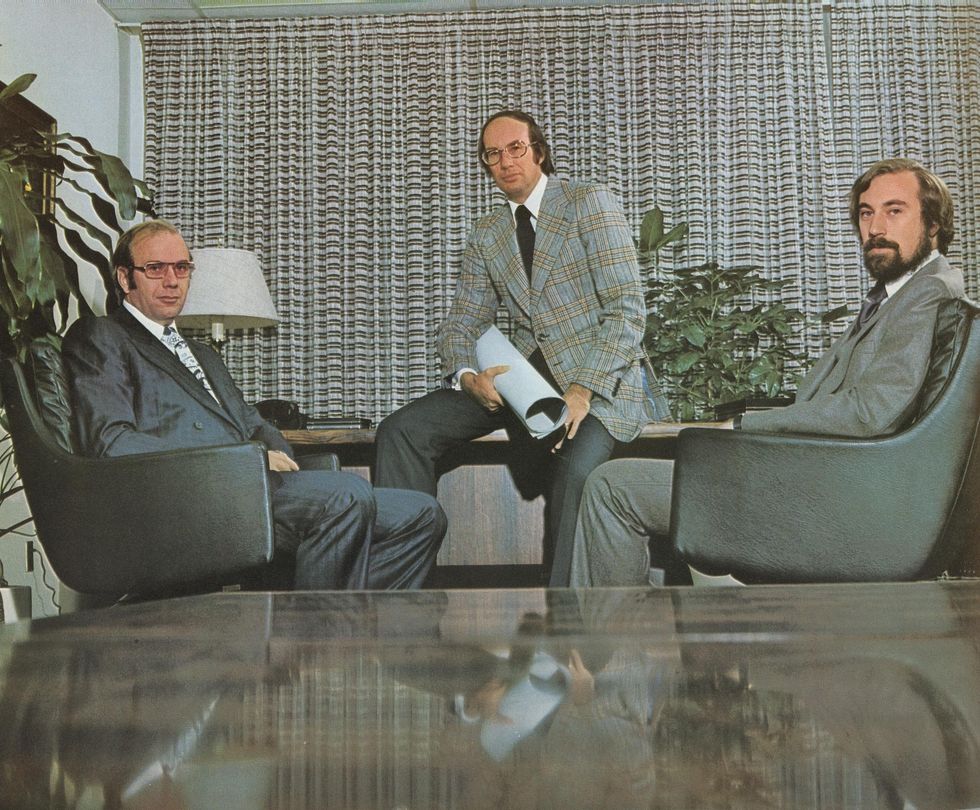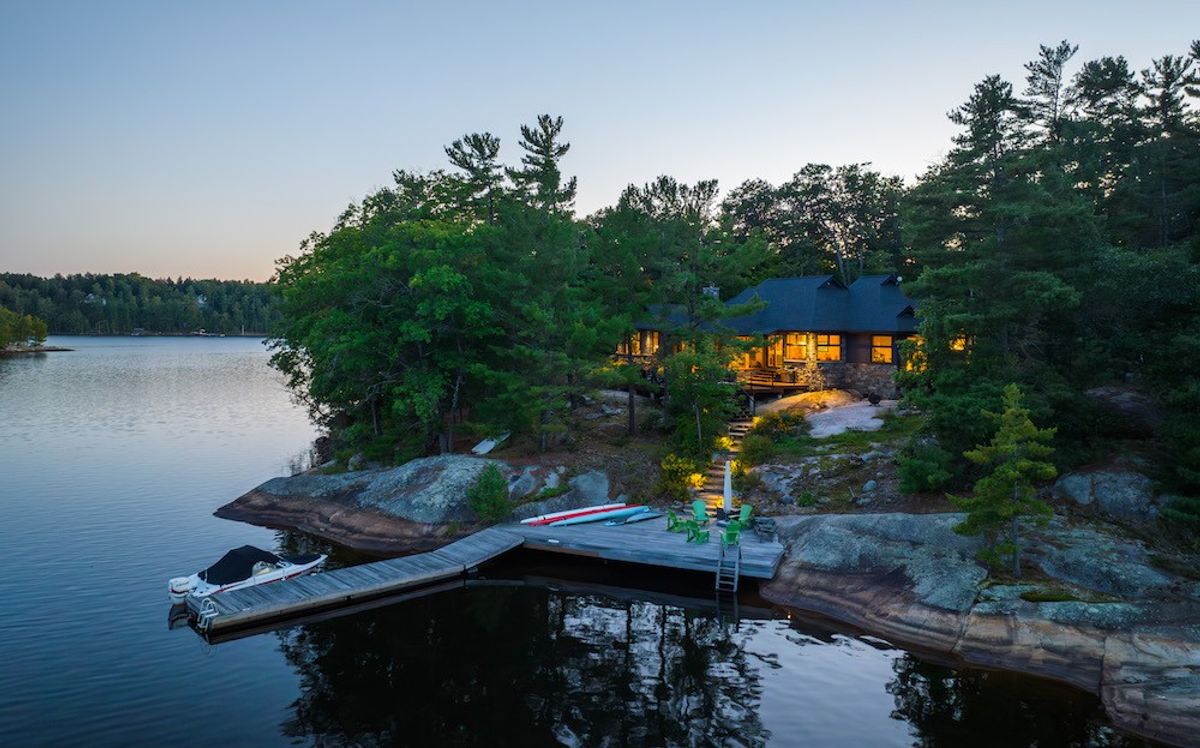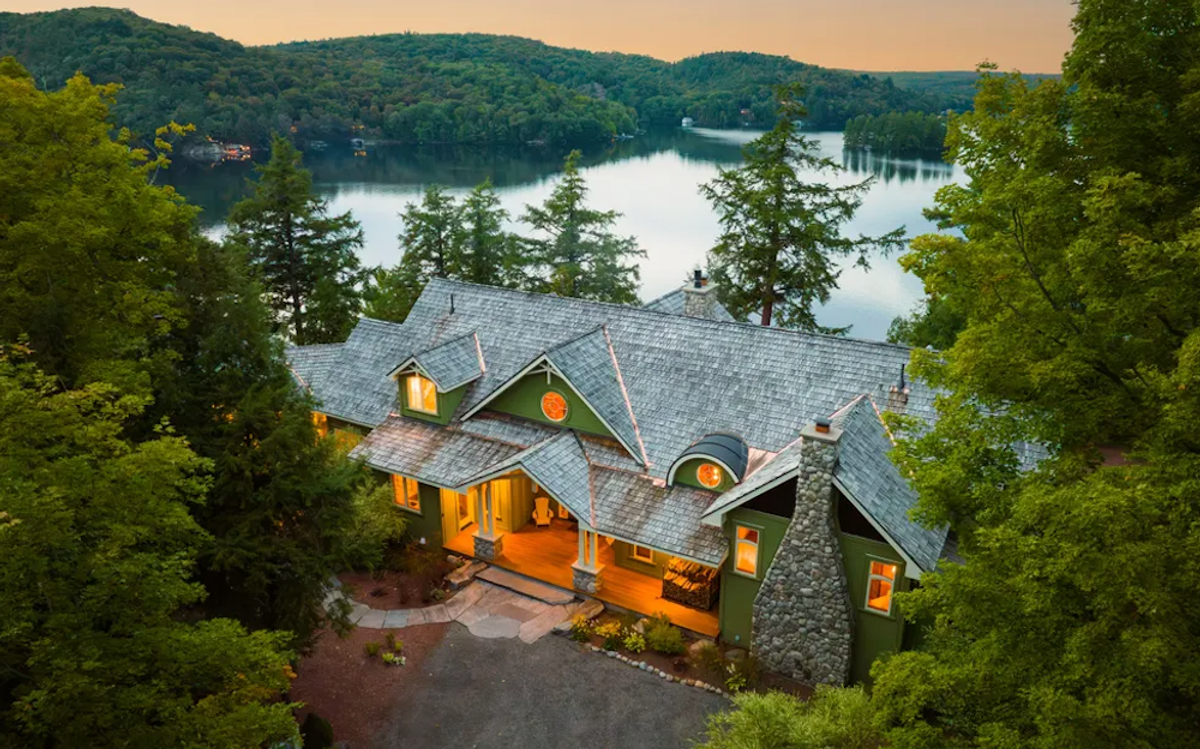The history of the Toronto condo can’t be told without dedicating a chapter (or several) to Tridel.
The pioneering Toronto real estate developer has built enough homes to house a mid-sized city, and was among the first in Canada to embrace the then-new condominium model in the mid-20th century. “They really were at the forefront of this industry, and not only were they successful in understanding it, they dominated it, frankly,” Tridel’s president, Jim Ritchie, tells STOREYS.
Ritchie would know, and not just because of his job title. He’s “somewhat of a historian for the organization” with first-hand knowledge running three decades deep.
Attending university in Ottawa, he took a part-time gig with Tridel as a construction clerk. “Let's just put it this way: anything somebody didn't want to do, they gave that job to me,” he says of the job with surprising fondness. “When I was finished with university, I just started working full-time and never left here,” adds Ritchie, who has worn many hats, including in property management and marketing, prior to taking on his current leadership role in July 2022 after a stint as COO.
With Tridel celebrating its 90th anniversary this year, STOREYS sat down (virtually) with Ritchie to discuss Tridel’s humble homebuilding origins, its status as one of the oldest developers in North America’s fourth-largest market, and parallels — as well as differences — between the early days and today.
From Small-Time Homebuilder To Condo Empire
Today, the Tridel Group, which encompasses the company’s numerous arms — such as Deltera, a construction-management firm, Del Property Management, and several others — employs just over 1,900 workers. That’s not including trades, which can number anywhere from 2,000 to 3,000, depending on how many projects are on the go, or consultants and other outside help. It focuses on the high-rise segment across the Greater Toronto Area and has built more than 90,000 units and counting. “You name it, we are everywhere in the GTA,” says Ritchie, who notes Tridel has also built in Ottawa in the past.
But the company began with just one stone mason: company founder Jack DelZotto, who emigrated to Canada from Italy in 1927 and built his first home in Toronto seven years later, eventually putting up entire subdivisions during the post-war boom. However, it wasn’t until the early ‘60s that Tridel got involved with multi-family housing, a move spurred by Angelo, Jack’s eldest of three sons.
Angelo, a real estate prodigy who obtained his first building permit when he was still a teenager, oversaw the construction of the company’s first apartment complex, in 1961. Ritchie credits the late entrepreneur and his two brothers, Elvio, and Leo, with forming a foundation for the company to become one of Canada’s largest private residential real estate groups. The brothers didn’t shy away from innovation and scaling up, qualities he admires. “They started to transition away from building not only single-family houses, but building apartment buildings and were rather prolific in the ‘60s building apartment buildings,” says Ritchie.
Opportunity kept knocking with the arrival of Ontario’s Condominium Act, in 1967. Suddenly, a new type of homeownership was established. As an experienced purpose-built rental builder, Tridel was well-positioned to quickly embrace the condo format despite all of the unknowns. The developer broke ground on its first condo project, Arbour Glen, an approximately 90-unit, 10-storey tower, in Oakville, in 1969, after assessing the nascent market’s potential. “That was a bit of a leap of faith,” says Ritchie.
Most homebuyers weren’t familiar with the condo-ownership format, so it was a potentially risky proposition. But the developer successfully topped off the Arbour Glen project in the early ‘70s, around the time the company officially became known as Tridel. Tridel had previously operated as DelZotto Construction but was renamed as a nod to Jack’s three sons — hence the Tri. (You can probably guess the Del’s provenance.)
To test the condo market, Tridel first catered to empty nesters by offering larger multi-room residences. “It started as a bit of a niche product — and, obviously, it’s evolved,” Ritchie explains, noting contemporary condos appeal to much broader demographics, whether it’s first-time homebuyers seeking relative affordability or investors looking to get in on the ground floor.
The evolving marketing efforts paid off: by the early-to-mid ‘80s, Tridel had exited the single-family home business altogether, focusing exclusively on condo and rental apartments.
A History Of Firsts
With few other examples of condos, there was no playbook for Tridel to turn to early on. Leadership needed to make decisions on the fly. For example, a condo without an in-suite washer and dryer is unthinkable today. More than 50 years ago, though, the precedent hadn’t been set (and the rental apartments Tridel had been constructing had featured communal washers and dryers). All of these details had to be worked out. “There were a lot of firsts,” says Ritchie. There was also some trial and error along the way, he says, as well as changing trends to respond to. (Tridel doesn’t use parquet flooring anymore.)
Firsts are a cornerstone of Tridel’s legacy. “We did lots of very neat things inside the suites over the years,” says Ritchie. The company still prides itself on innovation and channeling the trailblazing spirit of the DelZottos. For example, Tridel’s Ten York development, completed in 2018, had a host of smart-home features. “You had an app for the building that would allow you, instead of using a key, you could manage the common-area doors with your smartphone,” he says of the 65-storey development, which also has such tech as license-plate recognition for the underground parking and automated parcel delivery. “Every building since Ten York has a smart-home platform,” says Ritchie.

Tridel’s involvement in The Well — a downtown mixed-use development where the company is delivering the condos — exemplifies another organizational pillar: sustainability. “There isn’t any heating and cooling equipment — boilers or chillers — in that entire development,” Ritchie explains of the massive joint venture spearheaded by RioCan REIT and Allied Properties REIT. Instead, The Well relies on a thermal energy system. The low-carbon infrastructure draws from a two-million-gallon underground water tank to warm and cool the site, which is truly Tridelian in scale: 1.2 million square feet of offices, 320,000 square feet of retail and restaurants, and 1,700 residential units.
Another through-thread of the Tridel story is family. The DelZottos continue to have a hand in the business to this day; Andrea, Angelo’s daughter, sits on the Tridel Group board alongside Leo, Elvio, and his daughter Lia. Known as the fourth brother, Harvey Fruitman — initially the company’s accountant — joined the DelZottos as a partner in the ‘70s and remains a board member as well.
Celebrating 90
Tridel kicked off the year of its granite jubilee exactly as you’d expect a Toronto developer to — with the launch of a new condo project: 6080 Yonge Condos, which is currently in the pre-construction sales phase and slated for completion in North York in 2028.

Meanwhile, Tridel is gearing up to break ground for the 57-storey Queen Church Condos, in downtown Toronto, and is doing site work at Harbourwalk, a pair of 19-floor condo towers by Mississauga’s waterfront. “We’ve got a pipeline for many years to come in the 905 and 416,” says Ritchie.
The pipeline helps insulate Tridel from the worst effects of the current market downturn, where higher interest rates have hammered new condo sales spurring developers to shelve some 60 projects across the Greater Toronto and Hamilton Area since 2022.
Of course, Tridel is no stranger to volatile markets, which is one benefit of being around for 90 years. It survived the late-’80s/early-’90s housing crash and the Great Recession. These past experiences, Ritchie suggests, have helped prepare Tridel to weather what comes next. “The players in this industry that have been around for a number of decades, they understand that there are cycles,” he says. “We always bet on the long term.”

